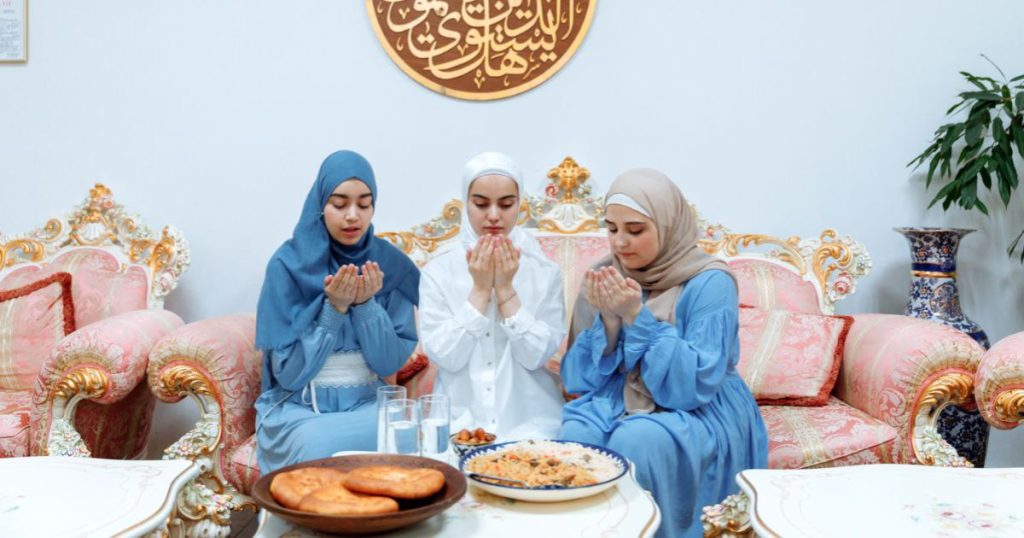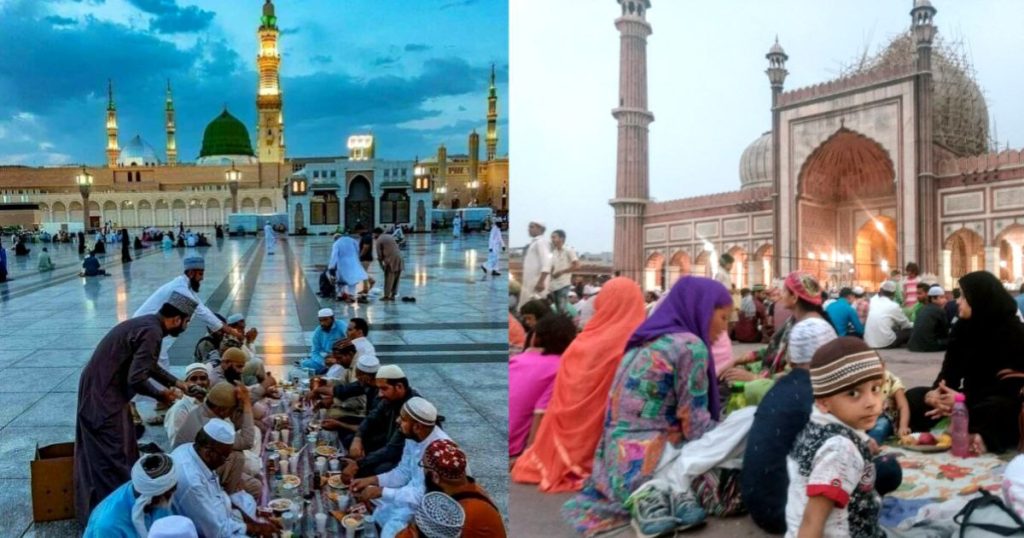Ramadan is a significant and highly anticipated month in the Islamic calendar, where Muslims worldwide observe fasting from dawn to dusk. It is the ninth month of the Islamic calendar, and the exact dates of Ramadan vary depending on the sighting of the crescent moon. In 2023, Ramadan is expected to start on 23rd March and end on 22nd April with Eid al-Fitr celebrations. Ramadan is often referred to as Ramazan, Ramzan, or Ramzaan. Here is a closer look at Ramadan, its significance, and the customs and practices associated with the holy month.
Significance of Ramadan
Ramadan is a month of spiritual discipline, self-control, and purification for Muslims. It is believed that the holy month commemorates the revelation of the Quran to the Prophet Muhammad by the angel Jibreel (Gabriel) in 610 AD (approx.), making it a period of reflection, prayer, and contemplation.
Fasting during the month of Ramadan is one of the Five Pillars of Islam and is obligatory for all healthy adult Muslims who have reached puberty. The purpose of the fast is to focus on spiritual growth, self-discipline, and empathy for those less fortunate. It is also a time for Muslims to seek forgiveness, repent, and perform good deeds.
Also Read|95th Oscar Award 2023: Who Created History Alongside Naatu Naatu and The Elephant Whispers
Customs and Practices during Ramadan
The month of Ramadan is a time of spiritual reflection and personal growth. It is a time when Muslims try to get closer to Allah (God) and seek his forgiveness. Here are some of the customs and practices associated with Ramadan:
Fasting
Fasting is the most significant and difficult practice during Ramadan. Muslims are required to refrain from eating, drinking, and other physical pleasure from dawn till dusk (sunset) which also includes smoking, sex, and even chewing gum. Fasting is a way to develop self-discipline, self-control, and empathy for the poor and needy.
Taraweeh Prayers
Taraweeh prayers are special night prayers that are performed during the month of Ramadan. These prayers are held after the Isha prayer and are usually performed in groups at mosques. The Taraweeh prayers are a way to seek Allah’s blessings and get closer to him.

Suhoor and Iftar
Suhoor (Sehri) is the pre-dawn meal that Muslims eat before starting their fast. It is a vital meal that helps in maintaining energy levels throughout the day. Iftar is the meal that Muslims consume at dusk to break their fast. It is usually a social event where family and friends gather to share a meal.
Charity
Ramadan is a period of generosity and charity. Muslims are encouraged to donate to charity and help the less fortunate during this month. Giving charity during Ramadan is believed to earn more rewards than any other time of the year.
Quran Recitation
Muslims are encouraged to read the Quran during Ramadan. Many Muslims try to complete the entire Quran during this month by reading a part of it every day. It is believed that reciting the Quran during Ramadan brings more blessings and rewards.
Challenges of Fasting during Ramadan

Fasting during Ramadan can be challenging, especially for those who live in hot and humid regions. The fast starts at dawn and lasts until sunset, which can be as long as 16-17 hours in some parts of the world. Muslims are also expected to continue with their daily activities, such as work and school while fasting.
Despite these challenges, fasting during Ramadan is an essential aspect of the Islamic faith and is seen as an opportunity for spiritual growth and self-discipline. Muslims believe that the rewards of fasting during Ramadan are significant and that it brings them closer to God.
Also Read| Martyr’s Day 2023: History, significance and everything you need to know
Summing Up
Ramadan is a significant month in the Islamic calendar that involves fasting, prayer, charity, and self-discipline. It is a time for Muslims to reflect on their faith, and seek forgiveness. Ramadan is the month of spiritual renewal, personal growth, and community building for Muslims. Muslims strive to develop self-discipline, empathy, and gratitude through fasting, prayer, and charity. The holy month of Ramadan serves as a reminder of the importance of faith, compassion, and unity, and is an opportunity for Muslims worldwide to strengthen their connection with God and with each other.
Also Read| IIT Kanpur organises Asia’s largest annual tech festival ‘Techkriti’
Different ways to greet each other during Ramadan
The phrases “Ramadan Mubarak” and “Ramadan Kareem” are among the most popular. These Arabic proverbs mean “blessed Ramadan” and “generous Ramadan,” respectively. This translates roughly as “Happy Ramadan”.
The Metaviews Team sends its best wishes for a blessed and peaceful Ramadan to all Muslims worldwide: “Ramadan Kareem”










Comments 2